


Dawn of Man blends elements of a city-builder, sim, survival game, and RTS with a tech tree that spans the Stone Age to the Iron Age. Like many games with similar elements, it's easy to get lost in it for hours; I certainly can't complain about the value. Despite my initial fears over the complexity, the tutorial makes it easy to get into the game, and managing your prehistoric village is fairly intuitive despite what feels like a large number of systems interacting at once. Every resident of your village is individually simulated, and it's your job to make sure they have food to eat, time to rest, season-appropriate clothing, tools to perform work around the village, weapons to fend off raiders, and an assortment of graves, totems, and giant stones to worship. Not to worry, the AI will take care of the minutiae... mostly. Instead, you direct your villagers where you want them to build, gather, and so on. You also control economic activity at a high level by setting limits for food, materials, and final goods. If you do it right, the villagers will usually take care of themselves. In fact, a lot of the game is spent at 8x speed waiting for things to happen. However, the game stands out most to me for how much it leaves on the table. It's a nice village simulator, but with a title like Dawn of Man and a tech tree that covers actual historical periods, one might have expected some historical authenticity. Instead, it's a generic take on history with an entirely European aesthetic played on procedurally generated maps that don't actually represent anywhere in particular. A number of natural disasters such as floods, drought, fires, and earthquakes that provide challenge for advanced players are AWOL. All in all, it feels like a demo to waiting to be fleshed out. Unfortunately, the developer has moved on from the game, so beyond player mods, what we have is all there is. Dawn of Man has a solid foundation that could have supported considerably more.
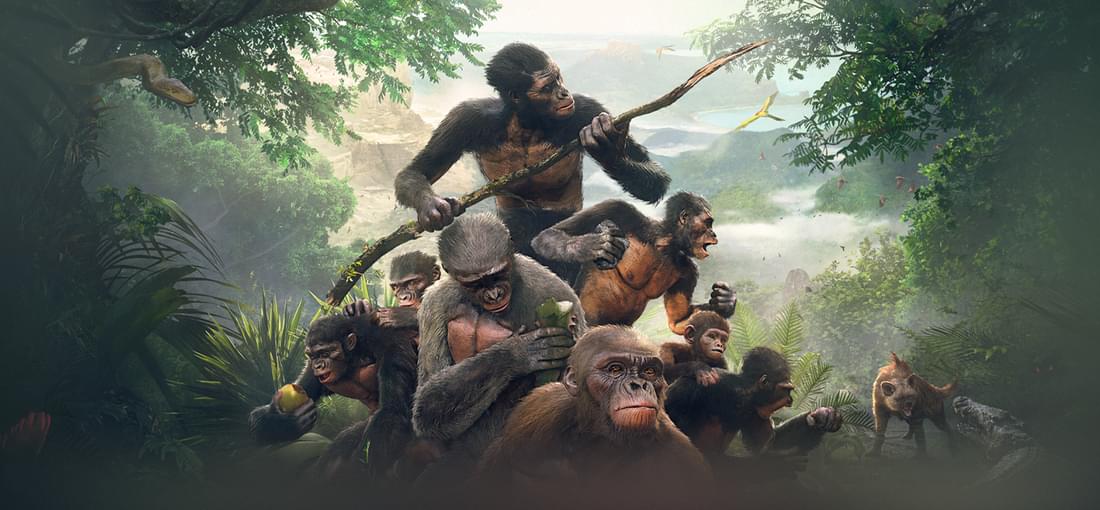
Ancestors: The Humankind Odyssey is a third-person, open world survival game in which you lead a clan of hominids over multiple generations from 10 million to 2 million years ago. Its most notable quality is taking on subject matter that has never been treated with this level of detail in a game before. While certain liberties have been taken, it's a serious game that may hold appeal for people who are interested in human evolution and development. With a simple goal and no underlying narrative or mystery, I found that what you get out of it is going to depend on what you bring to it. There's a nice enough little adventure here, but it relies almost entirely on the player making it into one. It also has some serious deficiencies that are impossible and unfair to overlook. Once the initial fascination wears off, the new player experience can be extremely frustrating. You're tossed into the world without much indication of what to do, lost and forced to rely on instinct and trial-and-error much like our hominid ancestors did. The game was more fun when I knew what I was doing, but it seems you're expected to spend a month of your life figuring it all out. It's clear many of the game's systems had a lot of though put into them, but others, such as combat, are simple and/or unsatisfying. Clan management especially suffers for the obsession of trying to avoid reminding the player that they're playing a game, and I ran into several bugs with both it and the map that made me feel they got to 95% and considered that good enough. On the plus side, I thought the animation of the hominids was A+ outstanding. Whether climbing, swinging through the trees, shuffling around on all fours, walking, or using primitive tools, the animations feel genuine. The sound effects bring you into the world, and the music is appropriately themed. The map has some game-y elements to it, such as an absurd number of cliffs and rock pillars, but it does a decent job selling itself as plausible.
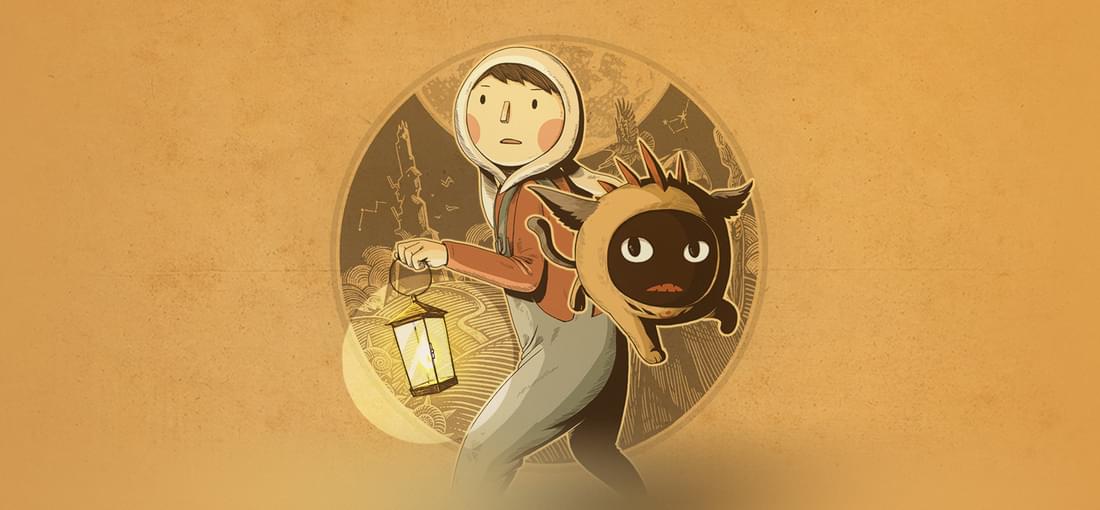
LUNA: The Shadow Dust is a linear point-and-click puzzle game that follows a boy on his journey up a mysterious tower. Along the way, he makes friends with a cat-like creature, and the duo must work together to solve puzzles and reveal more of the story. The puzzles are self-contained. There's no inventory and no need to go back to previous areas to find some essential clue that you missed. By and large it also successfully avoids pixel hunting. Difficulty ranges from very easy to moderate, although a couple of puzzles border on tedious with the repetition required. The hand-drawn art, music, puzzles, and story work together to create an atmosphere that feels like a surrealist children's book or animated short. There are also definite echoes of Machinarium and Gorogoa. You'll never forget that you're playing an indie game, but the presentation is otherwise on point and professional. There's a lot of interactive fiction that works without any type of dialogue, and LUNA styles itself as one of those games. Much of the story is revealed through animated cutscenes. Unfortunately, I often felt I only vaguely understood what the writers were trying to get at. Some simple narration in voice or text form might have been able to help in this case. The game gets bonus points from me for a couple of really good features on the main menu: (1) a "map" of the tower that lets you replay any puzzle room you have completed, and (2) the ability to rewatch any of the cutscenes you have unlocked. For most people, LUNA will clock in between two and five hours on a first playthrough. There's a place in the world for games like this one, and I'd like to see the team behind it make more. At the same time. I can understand why some might feel they got shorted. At the end of the day I wasn't blown away. Nevertheless, as somebody who enjoys these type of games, LUNA: The Shadow Dust was a pleasant way to spend an evening.

Florence is an interactive storybook about adult life and relationships. There's no bad guy to beat and no choices to be made. You scroll/swipe though the screens to advance the story, some of which require the completion of a simple activity. These include things like hitting snooze on Florence's alarm clock, doing simple math problems,and completing literal puzzles (i.e. with pieces). Depending on how long you spend taking things in, expect it to take between 30 and 60 minutes. I confess that I wanted to like Florence before I experienced it. I'm a big believer that we're still just beginning to explore the possibilities of computers as a storytelling and artistic medium. Not everything has to be edgy, high-adrenaline, or even winnable to be enjoyable or well made. Florence is a great example of that, moreso than I had even imagined when I bought it. The presentation is extremely crisp. There are games with far more invested in them that don't do it half so well, and the way the art, music, and story complement each other is simply superb. There's no dialogue, but Florence doesn't need it. If you're an adult, you know the story, whether it belongs to you or somebody you know. Although I'm not female nor went through a relationship exactly like Florence's, I found it to be quite possibly the most relatable story I've come across. And while on the one hand that could make it ho-hum (and for some it undoubtedly will) I found I felt the same drudgery, happiness, emptiness, and so on that Florence was feeling. What really put Florence over the top for me were a couple of activities toward the end, where the activities themselves were metaphors for the story at those moments. That's the type of higher level design developers should be shooting for. Florence is not going to be for everybody, so do your homework before you buy it, but for the audience it's trying to reach, it can be a really enjoyable or even moving experience.
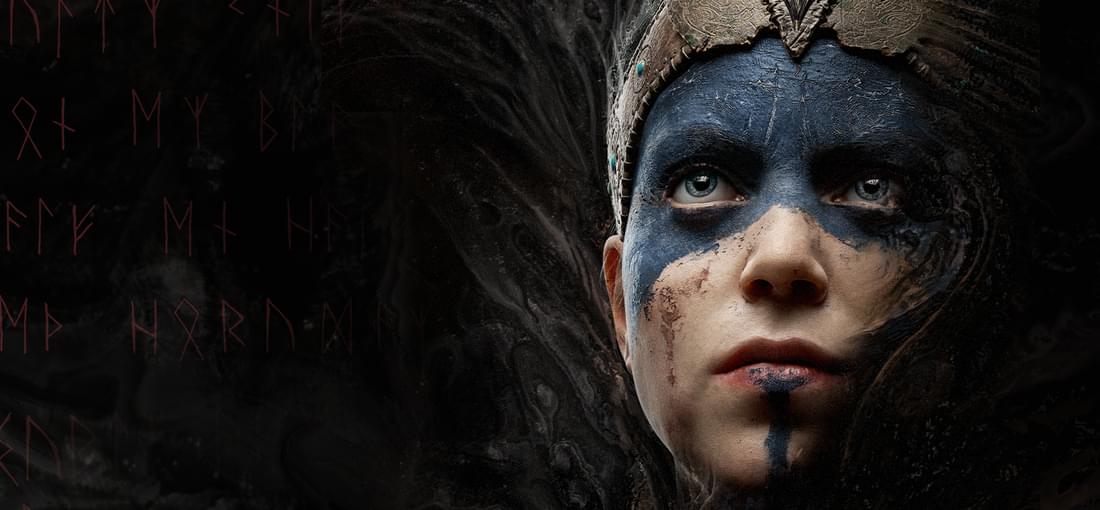
Hellblade: Senua's Sacrifice puts you in control of a female Pict (Iron Age peoples from Scotland) on a personal quest to rescue her beloved from Helheim, the Norse underworld. And if that doesn't seem to make a lot of sense, know that it's a reflection of the pretentiousness that plagues the game and the hype surrounding it. The developer, the gaming media, and the game's fans all so very badly want you to say it's not brilliant so that they can tell you you're just too dumb, insensitive, sexist, etc. to appreciate it. Truth is, there's much less game here than you're going to find in hundreds of other titles. It spends much of its time being a walking simulator, albeit a visually attractive one at times. Progress along the game's linear path is gated by puzzles and combat sequences. There's nothing to fight outside these sequences, and virtually nothing else to interact with (runestones that feed you Norse mythology being a notable exception). Puzzle varieties are limited to a mere handful and quickly become repetitious. The real meat of the game is the main character, Senua, and unraveling her story. She suffers from psychosis, which manifests as voices in her head and the ability to see things that other people never notice. Despite my worry that it would feel like a gimmick, I found her personal demons credible. Once I learned where they came from, anyway. After a brutally slow start, things pick up during the "middle" part, with the pieces of the story falling into place more quickly and the zones being shorter. The characteristics that make it hard to play early on, including a persistent, oppressive, uneasy feeling, come together to put the player in Senua's head, to enable us to feel what she feels. The use of the camera, lighting, weather, and sound (and silence) to evoke a psychological response is next-level game design. So there is some good stuff here, but I can't help but feel it works better as a demo or study in game design than an actual game.
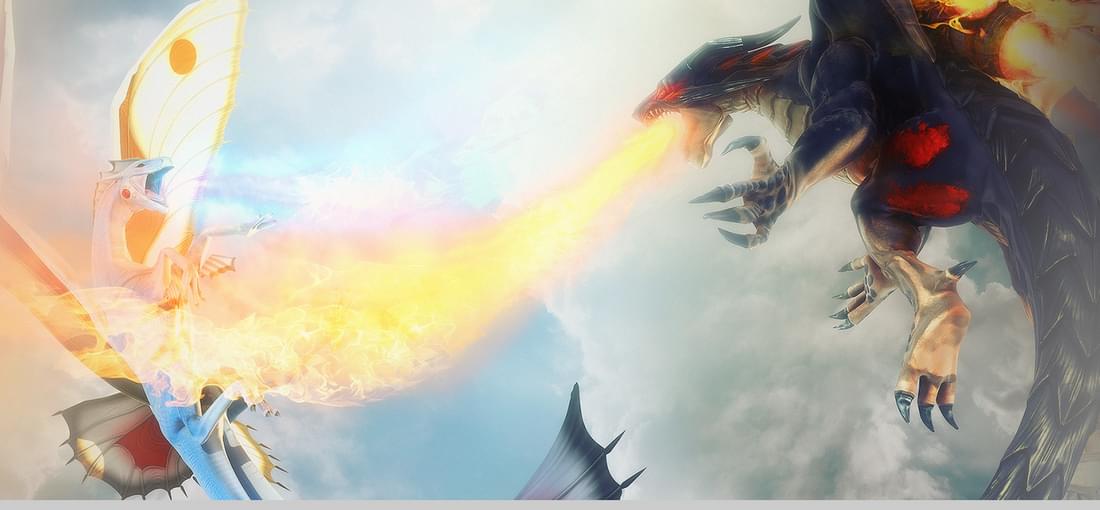
Divinity: Dragon Commander is a bizarre mash-up of Total War, Bioware RPG, tabletop wargame, shooter, and political simulation, with just enough Divinity to justify marketing it as a title in that series. Despite the setting having a reasonably diverse assortment of races and classes, the RTS uses completely generic units with a steampunk theme that could have been dropped into many settings with essentially no changes required. I would not be surprised to learn it had been coopted from a never-released title. The highlight of the RTS combat is the jetpack-wearing dragon your character turns into. Using shooter mechanics, you can launch your fiery breath at your enemies or slot abilities that aid your RTS units. Your enemies will fire homing projectiles back at you, requiring you to dodge to avoid taking damage. The dragon trivializes many of the small-scale battles early in campaign mode. Later on, the battles become so unwieldy that building up a superior force and auto-resolving them will save you the hassle of dealing with the mediocre RTS play. If you are triggered by political opinions on either side of the spectrum, then you should probably pass on this one. In the RPG/political phase, the player's generals and advisors are a panoply of blatant stereotypes asking him to rule on issues such as gay marriage, the wage gap, legalization of marijuana, genetically modified food, and so on. The player's choices alter his reputation with the game's races or grant cards that can affect the strategic side of the game. RPG fans are constantly asking for games to include moral choices that have a meaningful impact, and it's almost as if Larian was like, "Here, this is what you said you wanted!" Having bought it on sale, I wasn't upset that I played through the campaign once. Despite it's flaws, I didn't find it without merit. The voiceovers are very seriously A+ good, and the effort-reward mechanism is there. There's potential, but it's disappointingly unrealized.
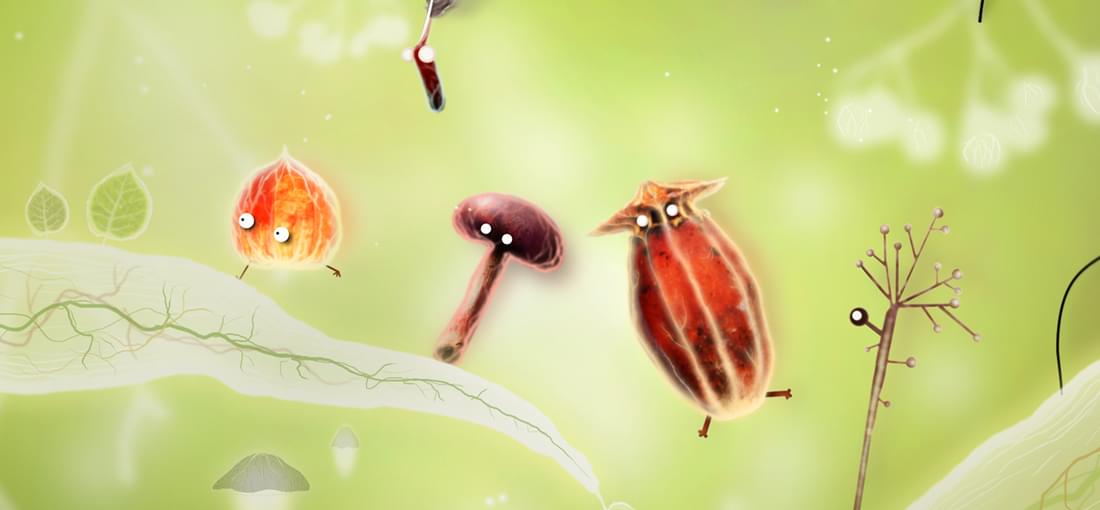
Botanicula is a visual and auditory treat with a whimsical story that, as others have pointed out, feels a lot like an old Pixar short. The player directs a fruit and its companions on a quest to rescue their ecosystem from vile, life-sucking spider-monsters. The game contains no dialog, either voiced or as text, relying instead on animated prompts. The story is advanced by solving puzzles with a variety of mechanics, making this a puzzle game in addition to interactive fiction. I do have a bone to pick with the gameplay of both this game and, to a lesser extent, its predecessor from Amanita Design, Machinarium. Too many of the puzzles reduce to randomly clicking on and moving things around until they work. The "Aha!" moment for these puzzles comes only after one has stumbled upon the solution (although sometimes there's no such moment at all), and that robs the player of the satisfaction of figuring it out. In a game where the core mechanic is solving puzzles to advance the story, that's less than ideal. Somewhat unfortunately, both games are given a pass for this because they're artsy, and holding them up as the greatest works of the computer age supposedly shows one's sophistication and good taste. But yes, if you're into games as an artistic and storytelling medium, this is worth a play. The aesthetic is awesome, and it's no mistake that this and Machinarium have had a big influence on countless indie adventure games. In the vain of knowing what you're paying for, do keep in mind that Botanicula is a short game. Even a first playthrough can be completed in three or four hours.
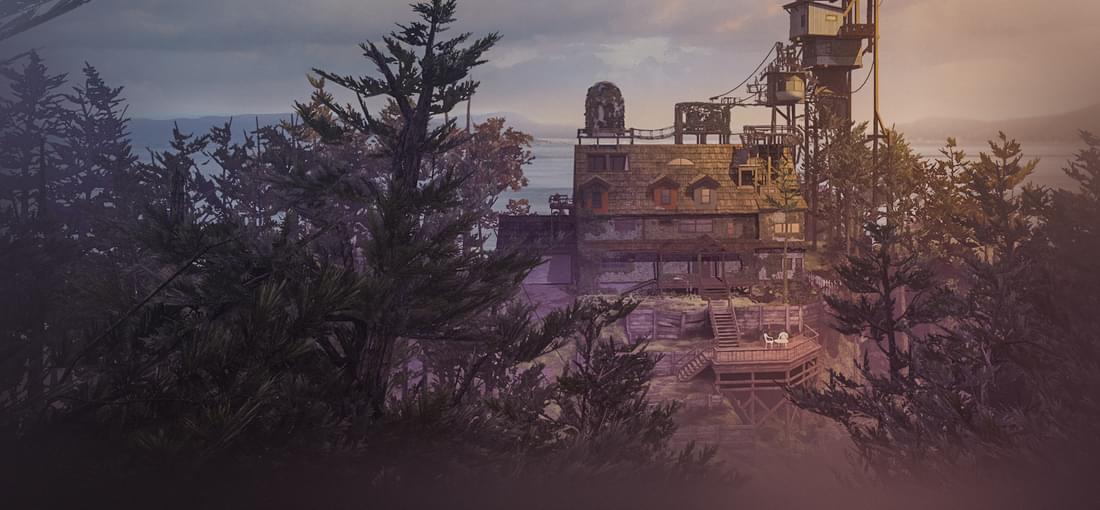
What Remains of Edith Finch is a brief but intriguing exploration of the possibilities of interactive fiction as a storytelling medium. Calling it a game is mostly a courtesy. There are no puzzles to solve and no choices to make that affect the outcome. There is no objective beyond witnessing, quite literally first-hand, the mysterious, bizarre, and sometimes tragic deaths of four generations of the eccentric Finch family as you guide Edith through the family home. However, What Remains of Edith Finch delivers on what it aspires to be, and in that context the accolades are understandable. I did find the lack of freedom disappointing. The game presents a visually intriguing environment, then prevents us from interacting with the vast majority of it. Of course, any game only allows you to do what it wants you to, but in this one that's so little that it felt claustrophobic at times. Among the highlights for me were the house's amazing visual detail and the use of a variety of mechanics to present the family vignettes. The latter is like a brainstorm session realized. None of these mechanics are very deep, but they are presented in a way that almost challenges other interactive storytellers to build upon them. The marriage of story and setting is superb, and together they come across as curiously believable despite being outrageous. In this respect, the vignettes are almost metaphors for the game itself -- the things we believe can be real to us whether they make sense or not -- and perhaps that's even intentional. What many gamers will struggle with is the need for what happened to make sense. There's no mystery to solve, although it feels throughout like there should be one. There's no great revelation that explains why the events we got to experience happened. And that's actually fine. Sometimes letting the audience figure out what they want to make of it all is more meaningful than telling them what really did happen (see David Lynch movies).
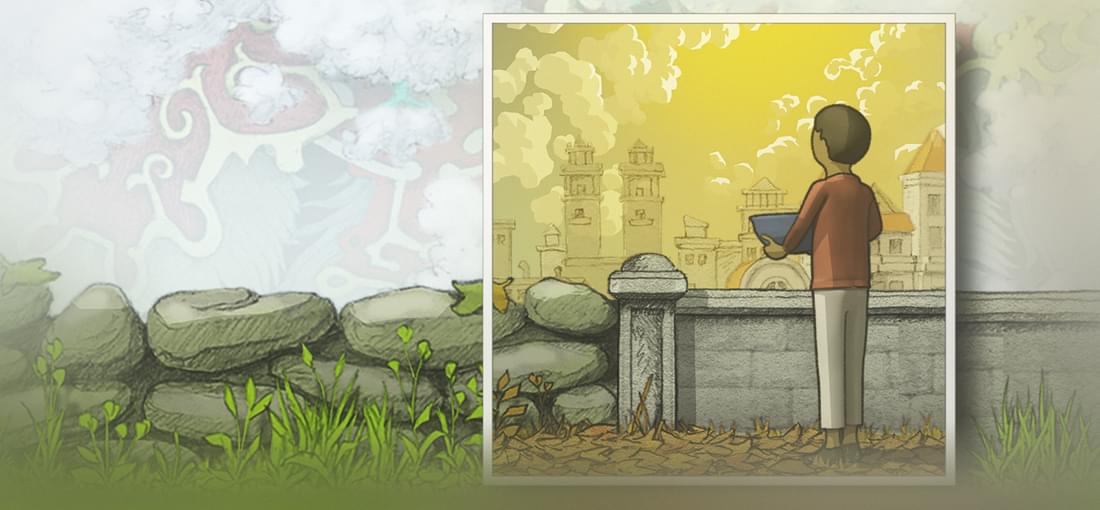
Gorogoa is a great example of a game as art. The core mechanic involves a 2x2 grid containing story panels that the player can move or zooms in/out on to solve puzzles that (almost) seemlessly advance the game's narrative. There are sound effects and thought bubbles with images, but no dialogue. The heart of Gorogoa, however, is the hand-drawn panels that evoke thought and emotion the way a piece of fine art might. Themes such as loss, regret, and the search for meaning are all explored in the imagery. I found the puzzles to be just the right amount of difficult for those with only a casual interest in puzzle games. Many will require some creative thinking to solve, but they're generally not so unintuitive that you'll need to frequently run to a guide for the answers. Frustrated players are the downfall of any puzzle game, and Gorogoa fairly successfully avoids that. The one negative about this game for me was that it was lacking in entertainment quantity. The first playthrough will take most players 1.5 to 3 hours. Once one knows the puzzles it can be completed in less than half an hour. I agree with the sentiment that Gorogoa represents the type of creativity we want to encourage and support, but I also understand those who believe they didn't get enough for their entertainment dollar. If you enjoy puzzle games, it's absolutely worth playing, but like any game, you should keep in mind what you're paying for.
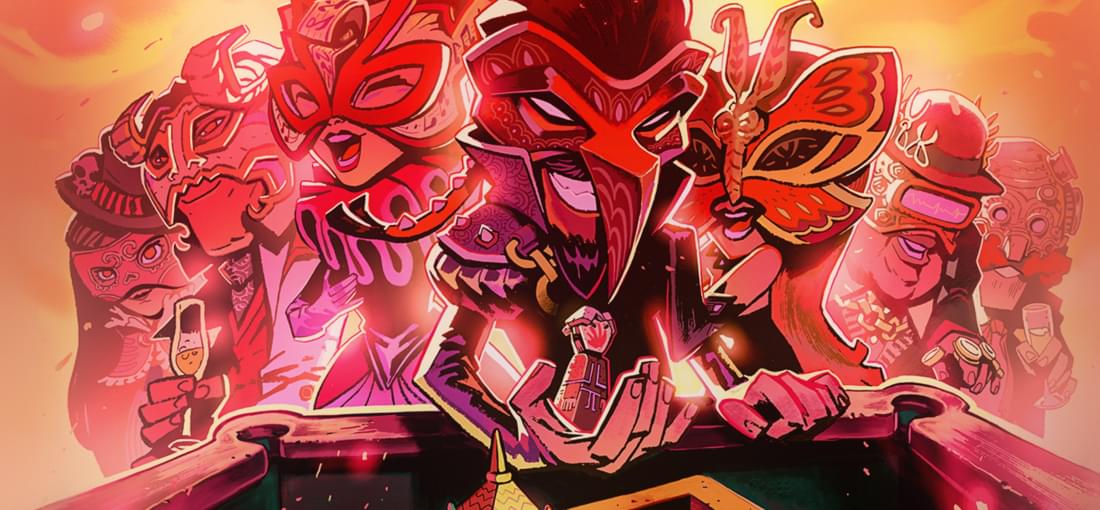
This is an atmospheric mystery-adventure with an art house flare and an unfortunate name. As Lafcadio Boone, a guest of the enigmatic marquis at his casino-mansion, The Sexy Brutale, you must solve puzzles to save your fellow guests from a terrible fate. For me it was a little bit Leisure Suit Larry, a little bit The 7th Guest, and a lot The Legend of Zelda: Majora's Mask. Some of the puzzles rely on the use of masks, which are collected throughout the game and are each imbued with a special power. More significantly, events at The Sexy Brutale occur at specific times during a 12-hour period that you will relive over and over until you break the cycle of death. Unsolved puzzles get reset, but certain plot milestones do carry over. For the most part it plays much simpler than it sounds. The music is definitely a highlight, and at times I got the feeling that the game was meant to be a showcase for it first and foremost. On the negative side, the UI and controls leave something to be desired, and I found the ending to be not nearly as clever as it tries to be. The name "The Sexy Brutale" might come across as chintzy, but don't let it turn you off. I'm glad I gave it a shot.